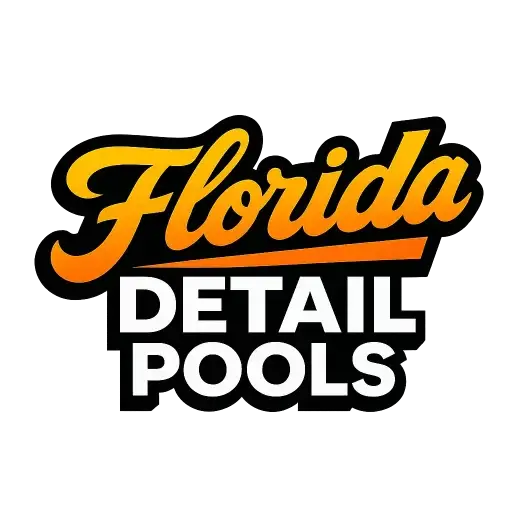Introduction
Saltwater pools are popular in Port Charlotte, Punta Gorda, North Port, Rotonda, and across Charlotte County because they feel softer on the skin, require fewer harsh chemicals, and maintain a sparkling look even under Florida’s hot sun. But when your property uses reclaimed water for irrigation or nearby drainage, pool care becomes more complex.
In this guide, we’ll break down how reclaimed water affects saltwater pools, the best maintenance practices, and what every local homeowner should know to protect their investment.

Why Reclaimed Water Impacts Saltwater Pools
Florida neighborhoods, especially in Charlotte County, often rely on reclaimed water for lawns and landscaping. While eco-friendly, reclaimed water carries extra nutrients, salts, and organic matter that can disrupt your pool chemistry if it splashes, leaks, or backflows into the system.
Key issues include:
- Higher phosphates and nitrates, fueling algae growth.
- Unbalanced pH and alkalinity that wear down salt cells.
- Staining from trace metals in reclaimed supply lines.
Local Insight: After heavy rains in Port Charlotte, homeowners often report cloudy water within 48 hours due to irrigation run-off seeping into their pools.
Essential Best Practices for Saltwater Pools in Reclaimed Water Zones
1. Monitor Water Chemistry More Frequently
Unlike freshwater-only zones, reclaimed water exposure demands extra testing. Aim for at least twice per week during peak summer months.
Target Saltwater Pool Chemistry:
- Salt: 2,700–3,400 ppm
- pH: 7.2–7.6
- Free Chlorine: 1–3 ppm
- Stabilizer (CYA): 60–80 ppm
- Calcium Hardness: 200–400 ppm
2. Protect Against Irrigation Backflow
If sprinklers or reclaimed water lines are close to your pool, consider:
- Installing check valves on irrigation systems.
- Re-directing sprinkler heads away from pool decking.
- Creating buffer landscaping (hedges or rock borders) to reduce splash.
3. Invest in Salt Cell Maintenance
Salt cells can scale faster when reclaimed water enters the mix. Clean your salt cell every 6–8 weeks with a manufacturer-approved acid wash to avoid chlorine production drop-offs.
4. Use Phosphate Removers and Clarifiers
Because reclaimed water carries nutrients, algae loves it. Add a phosphate remover monthly to keep levels under 200 ppb. Clarifiers also help bind fine particles before they cloud your pool.
5. Seasonal Awareness for Florida Pool Owners
- Summer Storms: Heavy rainfall in Punta Gorda often leads to reclaimed water overflow. Keep a pool cover handy for storm prep.
- Snowbird Season: If you’re away during winter months, arrange for professional pool cleaning in Charlotte County (Florida Detail) to prevent unchecked algae.
Local Professional Tips
- Rotate Filter Cleaning – Cartridge and DE filters clog quicker with reclaimed water residue. Backwash or rinse every 3–4 weeks.
- Metal Sequestrants – If your reclaimed supply introduces copper or iron, use sequestrants to prevent staining on tile and plaster.
- Smart Monitoring – Invest in a digital pool monitor to send alerts directly to your phone, reducing surprises during vacation season.
Common Questions from Charlotte County Homeowners
Q: Can I use reclaimed water directly to top off my saltwater pool?
A: No. Always use potable water. Reclaimed water contains too many nutrients and can destabilize pool chemistry.
Q: Why does algae grow faster in my North Port pool than my neighbor’s?
A: Likely due to irrigation spray drift or soil seepage from reclaimed zones. Installing barriers can drastically reduce the problem.
Q: Is hiring a pool service worth it in reclaimed water areas?
A: Yes. Companies like PortCharlottePoolService.com and NorthPortPoolCompany.com know how to counter these local challenges.
Internal & External Links
- Explore more on Florida Detail.
- Learn about eco-friendly pool chemicals in hot Florida weather (read here).
- Book pool cleaning in Charlotte County through Florida Detail Services.
- For marketing insight, check UnlimitedManiac.com.
- Local service references: PoolCleaningInPortCharlotte.com.
Final Thoughts
Living in Charlotte County, Rotonda, or Punta Gorda means enjoying saltwater pool comfort with Florida sunshine year-round. But when reclaimed water is part of the environment, it calls for extra diligence.
By testing more often, protecting against irrigation splash, and maintaining salt cells, your pool will remain clear, comfortable, and inviting no matter the season.
👉 Need trusted support? Visit Florida Detail today to connect with local professionals and keep your pool ready for every swim.
